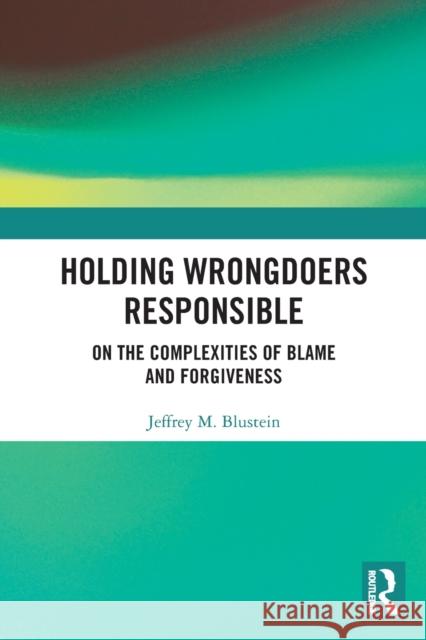Holding Wrongdoers Responsible: On the Complexities of Blame and Forgiveness » książka
Holding Wrongdoers Responsible: On the Complexities of Blame and Forgiveness
ISBN-13: 9781032139470 / Angielski
Holding Wrongdoers Responsible: On the Complexities of Blame and Forgiveness
ISBN-13: 9781032139470 / Angielski
(netto: 185,77 VAT: 5%)
Najniższa cena z 30 dni: 193,06
ok. 22 dni roboczych.
Darmowa dostawa!
Holding Wrongdoers Responsible contests a number of widely accepted, almost standard, claims about blame and forgiveness in the philosophical literature, and their relationship to each other.
Holding Wrongdoers Responsible contests a number of widely accepted claims about blame and forgiveness that are insufficiently examined in the philosophical literature, and their relationship to each other. These claims are:
i Anger is the most fitting kind of blame for those who are guilty of wrongdoing.
ii Culpable wrongdoers should be blamed for what they have done.
iii Forgiving consists of renouncing blame and blame feelings, especially angry ones.
iv Forgiving is a kind and compassionate act for which a wrongdoer should be grateful.
Against (i), the book argues that there are a number of reasons why we should be skeptical about the singular importance given to anger in this connection; against (ii), that blame is just one possible response to wrongdoing and, like other responses, has to be evaluated in relation to its purposes and the available alternatives; against (iii), that the continuation of blame after forgiveness is neither conceptually nor morally ruled out; and against (iv), that the image of forgiveness as benevolent and gift-like belies its dark side. By contesting these claims, the book reveals some of the moral and psychological complexities of these phenomena.











